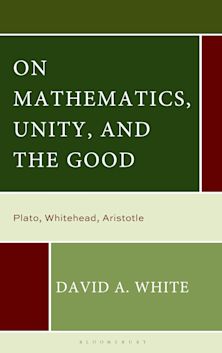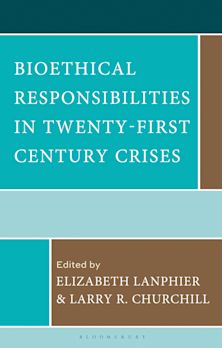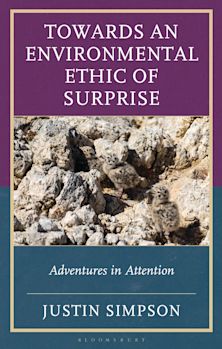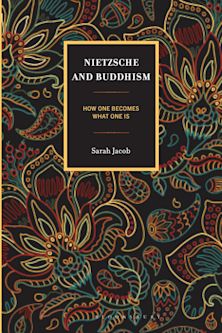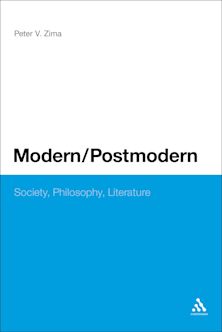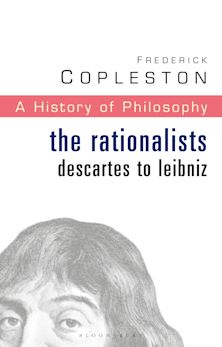The Mystery of Being
Reconsidering the Mystical Element in Heidegger's Thought
The Mystery of Being
Reconsidering the Mystical Element in Heidegger's Thought
Description
This book showcases the contributions of esteemed scholars in Heideggerian studies, delving into the inquiry of the mystical essence inherent in Heidegger's thought.
Rather than confining "mystery" to the conventional realm of mysticism, separate from philosophy, this volume's original research investigates how the mystery of being is integral to philosophy itself, shaping its performative and transformative nature. The book's central inquiry asks whether this mystical element is essential to Heidegger's thought and how it relates to traditional notions of mysticism. At its core, however, it questions the very essence of philosophy-its transformative potential-engaging with numerous themes in Heidegger's work while remaining attuned to the centrality and significance of the mystery of being.
Table of Contents
Foreword: The Mystical Sense of Life
John D. Caputo (Syracuse University, USA)
Introduction. Reconsidering the 'Mystical Element'
Erik Kuravksy (University of Vienna, Austria)
Part I. The Trace of Mysticism in Heidegger's Thinking
1. In Search of the Divine God. Heidegger, the Transformative Art of Philosophy and Religion
Holger Zaborowski (University of Erfurt, Germany)
2. Heidegger's “Mystical” Vision of Being
Richard Capobianco (Stonehill College, USA)
3. The Mysticism of Heterothesis: Heidegger's Reading of Duns Scotus and Beyond
John Krummel (Hobart & William Smith Colleges, USA)
Part II. Hermeneutic Ontology as a Path to Retrieving Genuine Mysticism
4. Temporality, Clairvoyance, and the Mystical in Heidegger's Being and Time
Rajesh Sampath (Brandeis University, USA)
5. Stretching Hermeneutics: Being and Time and Scripture
Peter Costello (Providence College, USA)
6. Heidegger and the Sufi Mysticism of Ibn ?Arabi
Bharatwaj Iyer (Indian Institute of Technology Bombay, India)
Part III. The Mystery as the Source of Mysticim: Stillness, Language, Thinking
7. Martin Heidegger and the Unspeakable: On the Source of Mysticism
Miles Groth (Wagner College, USA)
8. Wording Stillness
Krzysztof Ziarek (University at Buffalo, USA)
9. The Grammatical Riddle of Being: Heidegger's Polysemous Participles
Lee Braver (University of South Florida, USA)
Part IV. Engaging the Mystery: Agency, Attunement, Attention
10. Releasement as a Mode of Knowing: The Mystically Noetic Core of Human Agency in Heidegger and Meister Eckhart
Erik Kuravsky (University of Vienna, Austria)
11. The Path of Awakening a Fundamental Attunement
Jessica S. Elkayam (Sam Houston State University, USA)
12. The Question of Being as a Praxis of Mindfulness
Lawrence Berger (Marist College, USA)
Part V. On the Way to a Dwelling Place (Among the Mystery of Things)
13. “This – is the land – the Sunset washes –”: Re-examining the Mystery of Place in Heidegger with Emily Dickinson
Axel Karamercan (University of Edinburgh, Scotland)
14. Heidegger's Fourfold Causality: The Mystical Path to Dwelling
Brendan Mahoney (University at Albany, USA)
15. Heidegger and the Mystery of the Simple (Experiencing the Beynghistorical Word-thing)
Lasha Kharazi (Georgian-American University, Georgia)
Index
About the Contributors
Product details

| Published | 18 Sep 2025 |
|---|---|
| Format | Ebook (PDF) |
| Edition | 1st |
| Extent | 320 |
| ISBN | 9798881860998 |
| Imprint | Bloomsbury Academic |
| Illustrations | 2 bw illus |
| Series | New Heidegger Research |
| Publisher | Bloomsbury Publishing |
Reviews

ONLINE RESOURCES
Bloomsbury Collections
This book is available on Bloomsbury Collections where your library has access.












